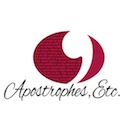English spelling is tricky: that is something most people agree on. There are a couple of pairs of words that a particularly troublesome for a lot of people: practice and practise, and licence and license. Prophecy and prophesy follow the same rules, but as prophesy in particular isn’t commonly used (prophesise seems to have taken over, possibly because of the confusion between the two words), they don’t seem to be so much of a problem.
There is a very simple difference between them: the –c– endings are nouns, and the –s– endings are verbs. (If we need to use the word as an adjective, we use the noun form.)
The main problem is that not so much the spelling but the pronunciation, which is identical. There are other pairs of words, such as advice and advise, device and devise, where the words are pronounced differently, and generally people don’t confuse them.
- Nutritionists are always advising us on better diets. Their advice is generally to eat more fresh fruits and vegetables.
- Steve Jobs was famously able to devise technological gadgets that people wanted. The devices he helped create have spread around the world.

Nutritionists advise on diet; their advice is to eat more fresh vegetables and fruit
The ‘ice’ and ‘is’ rule

Remembering that ice is a noun will help you to spell these tricky words correctly
There is a very easy way to remember which words are spelt with the ‘c’ and which ones are spelt with the ‘s’: Ice is a noun, so nouns are spelt with –ice or –c–; is is a verb, so the verb forms are spelt with –is or –s–.
An extra for this rule is that, if you are using participle endings (usually –ing or –ed), you are using a verb form, and must use the –s– spelling.
(I can’t now remember which of my schoolteachers taught me that rule – the most likely candidates are Mrs Shaw, Mrs Webb, Miss Kirshner or even Miss Ayres – but I am grateful to whoever it was!)
Practice and practise

At practice, Steph Catley practises her ball skills
The ‘rule of ice’ makes these two words easy to remember
- Practice helps Matildas player Steph Catley with her ball skills. (noun form)
- Matildas player Steph Catley practises her ball skills regularly. (verb form)
If we use an adjective, we use the noun form:
- Matildas player Steph Catley concentrates on her ball skills at a practice session
Licence and license
Again, these two words follow the ‘rule of ice’:
I have my driver’s licence. (noun form)
I have now been licensed to drive. (verb form)
There is a complication with licence in that there are three adjectives we can use:
- Licence conditions restrict the type of car I can drive. (adjective form, using the noun).
- I am now a licensed driver. (adjective form, using the past participle, a verb form)
- The licensing authorities have decided that I am safe to drive a car. (adjective form, using the present participle, a verb form)
But if you remember the second part of the ‘rule of ice’ (is is a verb), then you should also remember that the participle forms must have an –s– spelling.
Finally, we also have the word licensee, which is a noun, but does have an –s– spelling. While licensee means someone who has a licence, it is generally just used when talking about someone who has the licence to sell alcohol (which can only occur in licensed premises). The only way to remember this one is that a licensee is someone who is licensed: the noun comes from the verb, not the noun.

A licensee is someone who has a licence to sell alcohol in licensed premises
Prophecy and prophesy
She is a taller but no plumper prophecy of what Christobel Veronica and the other girls will grow to . . .
The song and poem I learn in Kensington kindergarten days truly prophesy the development of the legend of Gallipoli and of the Anzacs
– Hal Porter, The Watcher on the Cast-iron Balcony
No tricks with these two: they follow the rule of ice. Prophecy is the noun, and prophesy is the verb.
- The fortune-taller used cards to prophesy my future.
- The prophecy was that my future was bright.

The cards prophesy a bright prophecy for me

A note on American spelling
I suspect the different American spelling rules for these words are the reason for a lot of the confusion with them. Americans always use a –c– in practice, and always use an –s– in license, regardless of whether the word is used as noun, verb or adjective.
Americans treat prophecy and prophesy the same way as advice and advise, and device and devise: they use –c– for nouns and –s– for the verbs.
![]()

If you have found this post interesting, you can find a full index to my other posts on the index page. To be notified when I post a new topic, follow me on Facebook! If you have any particular questions you’d like me to answer in future posts, just send me a message. I’m always interested to learn what people think, and how you came across this site, so please post a comment.
If you think you would be interested in either my complete grammar course or an individual customised online course (particularly suited for people who don’t live in Melbourne), just click your preferred option.
2 comments on “Commonly confused words: practice and practise (and licence and license and even more)”